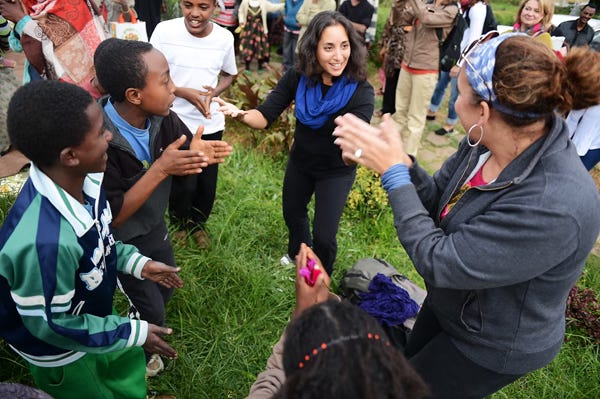When you don't know what else to do, help the helpers
Your sphere of influence is bigger than you think 🌎

In 2012, I traveled to Ethiopia as a member of a team of parenting writers invited by ONE, the non-partisan global anti-poverty advocacy group. Our objective was to learn and write about how US aid impacted families and children, and then share these stories with o…
Keep reading with a 7-day free trial
Subscribe to Parent of Adults to keep reading this post and get 7 days of free access to the full post archives.


